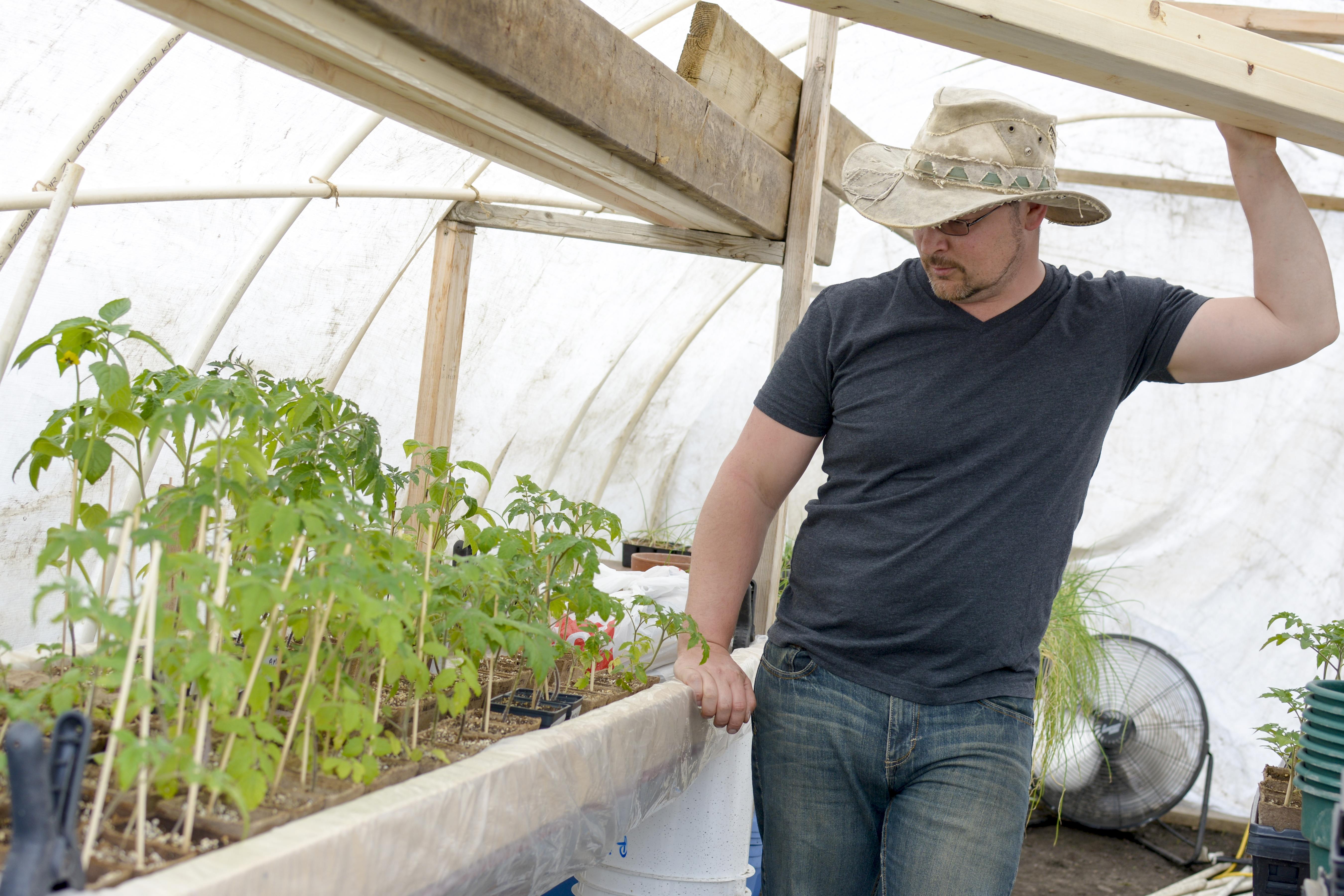Local urban grower and sustainable living advocate Rene Michalak recently opened the doors of his home in Oriole Park to the public for tours.
Michalak has spent the last four years converting his home into a demonstration site for sustainable living to give people an appreciation and understanding of what sustainable living looks and feels like.
He hopes to show the public sustainable living is not as daunting of a task as many assume as well as show the power of urban growing.
“If we can show through what we are doing here that you can grow enough calories in all forms to sustain a family of four, then there is a case there that you don’t need a farm-sized area to live sustainably and maintain that level of sustenance,” explained Michalak.
“We are creatures of habit and we like things to stay the same, but the world is a changing place – so what we are trying to do here is show how we can adapt to the increasing volatility of change we are experiencing in the political, economic and natural world.”
The hour-long tour through his home began in the front yard.
Here instead of a traditional grass lawn, a mock forest bed had been made of mulched wood chips with grass growing below to mimic the floor of a forest and a variety of young food-producing shrubs and trees were placed.
Upon entering the home, tourists saw the power of indoor growing with long lines of plants being grown in the living room of the home next to a south facing window.
Here Michalak explained how he is able to get a head start on the growing season by germinating seeds indoors and transplanting them outside when the weather allows him to do so.
Next to the seedlings sprouting in the sitting area are a number of books and learning materials, which he has collected to expand his knowledge of sustainable living and urban growing which he insists you will not find in your local library.
In the backyard of the home, Michalak has placed a number of five-gallon pales full of dirt in which he grows a number of different kinds of garlic, which he hopes to begin selling soon at local markets.
Here the tourists also saw a forest-like setting composed of a wood chipped ground with under shrubs below larger trees, which will one day grow into a canopy of fruit-laden trees including apples, plums and apricots.
In the far corner of Michalak’s backyard rests a homemade three season greenhouse, called a hoop house – made from rebar, tarp and PVC pipe, which is home to cucumbers, tomatoes, peppers and asparagus.
Next to the greenhouse is a medium-sized garden in which a variety of vegetables grow along with fruit trees which peek into the back alley through the fence.
Inside his garage, he hosts both an aquaponic and airoponic growing system for four season growing where he has herbs and vegetables growing alongside his worm composting site.
He calls the worms his productive pets, which he explains can also include rabbits, chickens and bees – all of which can be raised to produce food.
Michalak’s inspiration for his site came after he tried a home-grown tomato for the first time and he experienced how different it tasted from a store bought tomato, which led to the beginning of him comparing as many store bought foods to home-grown foods as he could and he said his curiosity, “Just grew from there.”
“The fact that we even have to label foods as organic now is startling,” said Michalak.
“It’s unfortunate how manufactured and processed food don’t have to label their products as processed then you start reading the ingredients on these products and good luck trying to pronounce half of them.
“Food used to be strictly organic, and now we are at a point where we have to feed so many people in the world that organic has become a luxury as opposed to organic being the norm.”
Michalak explains that in the future he hopes to help bridge the gap between people and their food.
“There are too many degrees of separation between people and their food and the people growing that food,” he said. “It’s to the point where most people really have no idea where the food they are putting into their bodies comes from or how it was grown.”
For more information on Michalak’s demonstration site or on how you can get started on your sustainable living site email info@rethinkreddeer.ca or visit
http://www.rethinkreddeer.ca.
jswan@reddeerexpress.com



